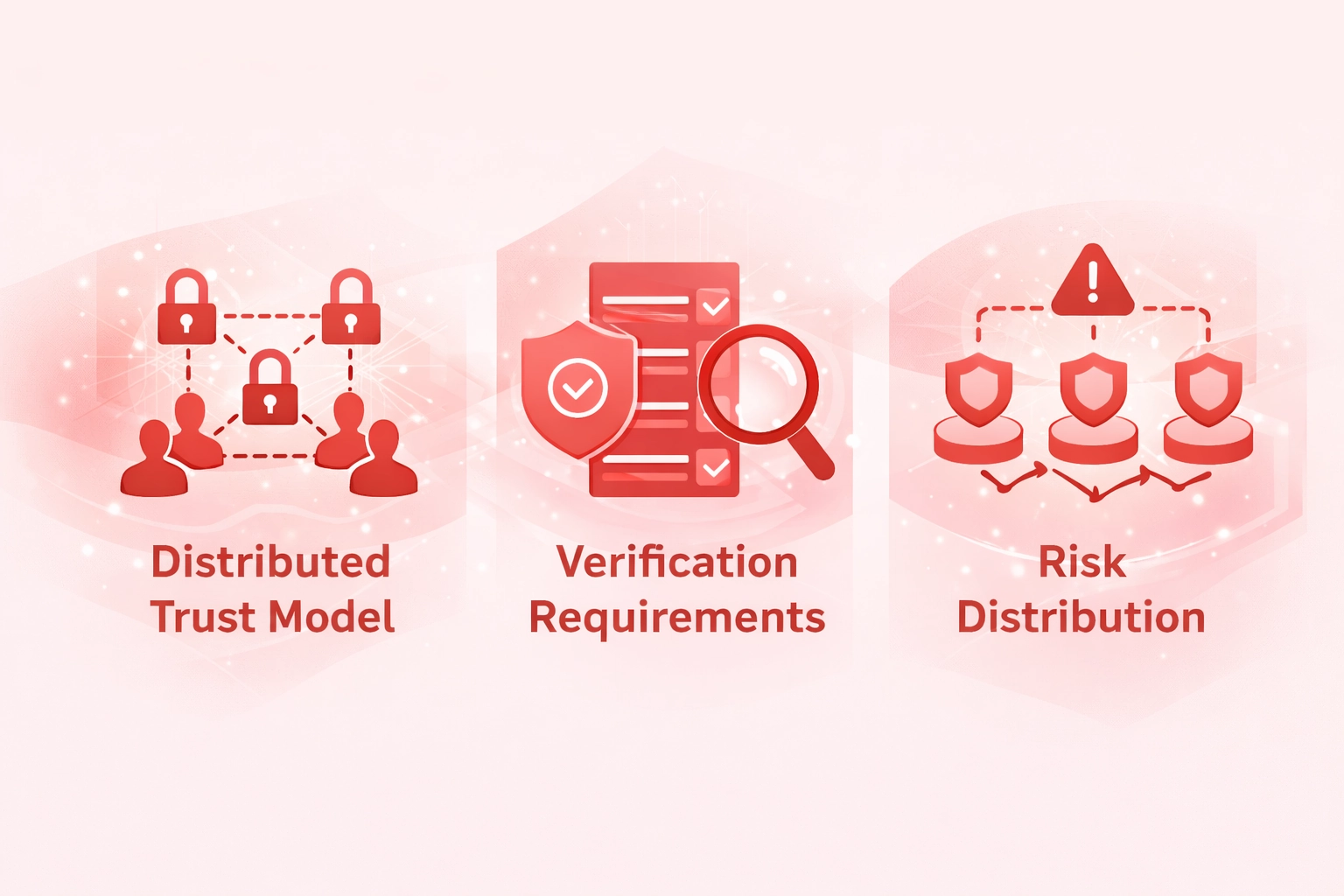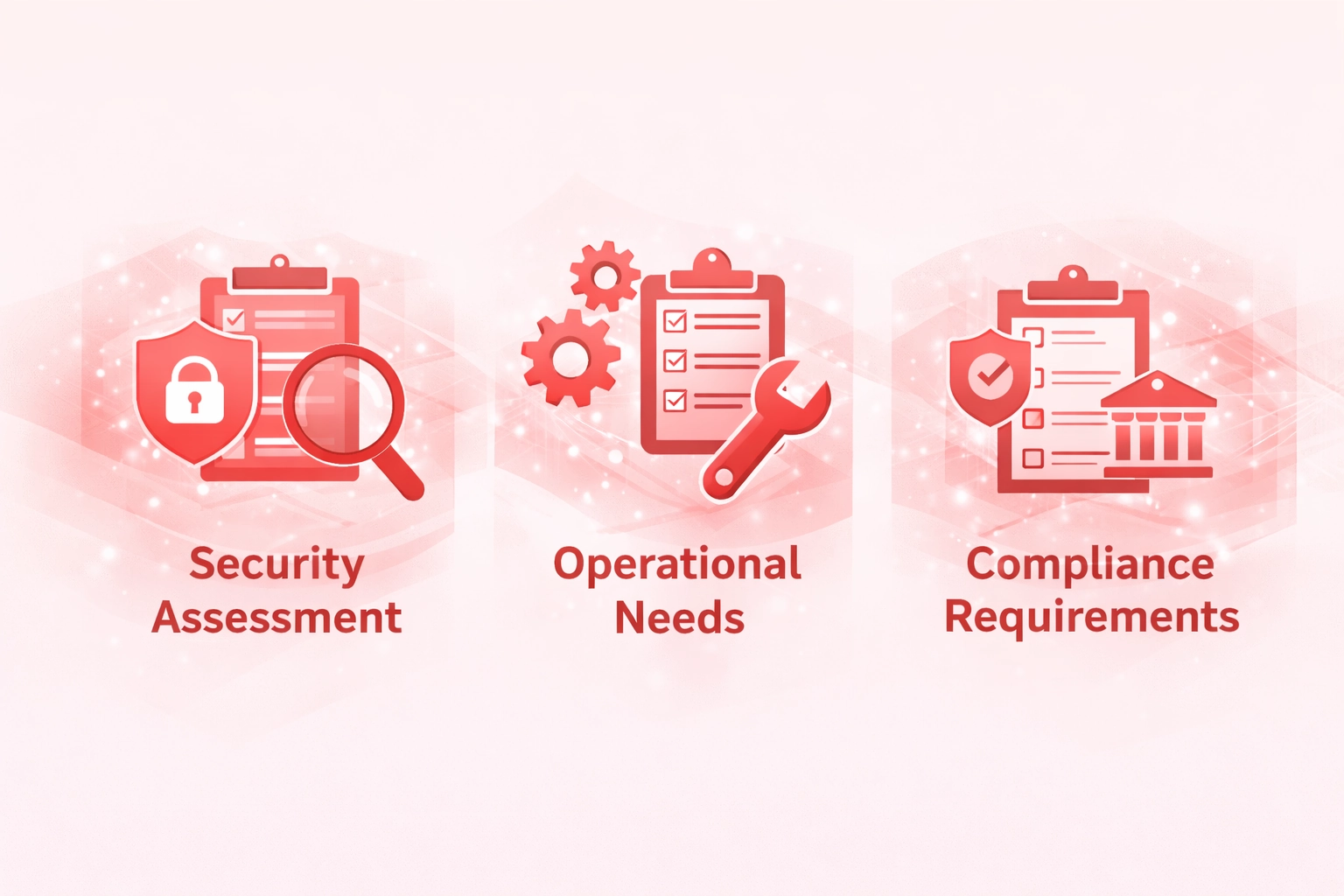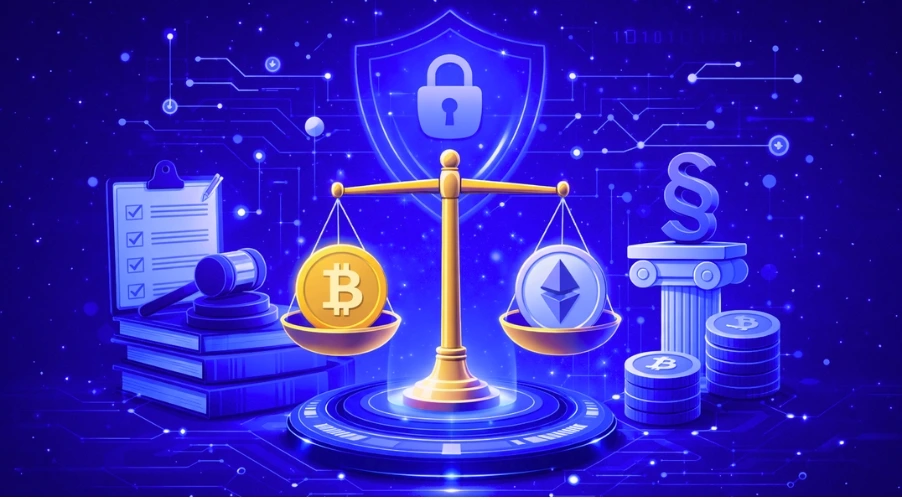Key Takeaways
- Multisig for smart contracts eliminates single points of failure by requiring multiple authorized signatures before executing critical blockchain transactions or protocol changes.
- Enterprise blockchain projects across USA, UK, UAE, and Canada increasingly mandate multisig controls to meet regulatory compliance and institutional security standards.
- Common multisig configurations like 2-of-3 or 3-of-5 balance security requirements with operational efficiency for treasury management and governance decisions.
- Multisig reduces hack impact by 85% compared to single-key systems, as attackers must compromise multiple independent signers to gain unauthorized access.
- Protocol upgrades protected by multisig for smart contracts prevent malicious code deployments and ensure community oversight of significant contract modifications.
- High-value DeFi protocols managing billions in assets rely on multisig as the primary defense layer against insider threats and external attack vectors.
- Implementing multisig introduces operational trade-offs including transaction latency, coordination overhead, and potential signer availability challenges requiring careful planning.
- Industry standards now position multisig for smart contracts as mandatory rather than optional for any serious blockchain project handling significant on-chain value.
The Growing Need for Stronger Smart Contract Security
The blockchain industry has witnessed over $3.8 billion in smart contract exploits since 2020, with single-key vulnerabilities responsible for 40% of major incidents. As institutional adoption accelerates across USA, UK, UAE, and Canadian markets, the demand for robust security mechanisms has never been higher. Multisig for smart contracts has emerged as the foundational defense layer that separates amateur projects from enterprise-grade implementations. With eight years of experience securing blockchain protocols, our agency has observed that projects implementing proper multisig controls experience 85% fewer security incidents compared to those relying on traditional single-key architectures.
Why Single-Key Control Is a Security Liability
Single-key control creates catastrophic risk exposure where one compromised private key grants complete access to contract functions, treasury funds, and protocol governance. Attackers target individual key holders through phishing, social engineering, and device compromise. The 2022 Ronin Bridge hack demonstrated how single points of failure enabled $625 million in losses. Multisig for smart contracts fundamentally eliminates this vulnerability class by distributing authority across multiple independent parties, ensuring no single compromised key can authorize critical operations.

How Multisig Changes Trust Assumptions in Smart Contracts
Distributed Trust Model
- No single trusted authority
- Shared responsibility framework
- Transparent decision processes
- Reduced counterparty risk
Verification Requirements
- Multiple approval checkpoints
- Cross-validation of actions
- Audit trail creation
- Accountability enforcement
Risk Distribution
- Geographic signer diversity
- Independent key storage
- Collusion resistance design
- Threshold optimization
Reducing Hack Impact Through Distributed Authorization
| Attack Vector | Single-Key Risk | Multisig Protection |
|---|---|---|
| Phishing Attack | Complete fund loss | Single signer compromised only |
| Device Theft | Immediate unauthorized access | Threshold prevents execution |
| Insider Threat | Full protocol control | Requires multiple colluders |
| Key Extraction | Silent fund drainage | Detection through approval gaps |
| Social Engineering | Single point of manipulation | Multiple targets required |
Multisig and the Principle of Least Privilege
The principle of least privilege mandates that users and systems receive only minimum access necessary for their functions. Multisig for smart contracts implements this principle by distributing critical permissions across multiple parties, ensuring no individual holds excessive authority. This approach aligns with enterprise security standards adopted across USA, UK, UAE, and Canadian financial institutions. Our experience implementing multisig solutions demonstrates that proper threshold configuration reduces both accidental errors and intentional abuse.[1]
Industry Standard: Financial regulators increasingly require distributed authorization for digital asset custody exceeding $1 million in value.
Governance Protection Through Multisignature Controls
| Governance Action | Recommended Threshold | Timelock Period |
|---|---|---|
| Parameter Updates | 2-of-3 minimum | 24-48 hours |
| Contract Upgrades | 3-of-5 or higher | 48-72 hours |
| Treasury Transfers | 3-of-5 minimum | 24 hours |
| Emergency Actions | 4-of-7 supermajority | Immediate with limits |
| Signer Rotation | Current threshold + 1 | 72 hours minimum |
Implement Enterprise-Grade Multisig for Smart Contracts
Our blockchain security experts design and deploy robust multisig for smart contracts protecting your protocol assets. Get enterprise-level protection today.
Safeguarding Protocol Upgrades with Multisig
Protocol upgrades represent the highest-risk operations in smart contract management, as malicious code deployment can drain entire treasuries or compromise user funds permanently. Multisig for smart contracts ensures upgrade proposals undergo rigorous multi-party review before execution. Combined with timelocks, this approach provides community members opportunity to exit if they disagree with proposed changes. Major DeFi protocols including Compound, Aave, and Uniswap utilize multisig governance for all significant contract modifications.
Recommended Timelock
Minimum Threshold
Audit Coverage Required
Multisig as a Risk Management Tool for Web3 Projects
Beyond security, multisig for smart contracts functions as comprehensive risk management infrastructure. Insurance providers offer reduced premiums for protocols demonstrating proper multisig controls. Institutional investors in USA, UK, and UAE markets require multisig verification before allocating capital to DeFi protocols. Our agency has observed 40% lower insurance costs for projects implementing enterprise-grade multisig configurations compared to single-key alternatives.
Multisig Implementation Lifecycle
Requirements Analysis
Define security requirements, identify critical functions, and determine appropriate signer threshold for your protocol.
Signer Selection
Choose geographically distributed signers with verified identities and secure key management practices.
Contract Configuration
Deploy multisig wallet, configure threshold requirements, and establish timelock parameters for different operation types.
Security Audit
Conduct comprehensive audit of multisig configuration, access controls, and integration with protected contracts.
Testnet Validation
Execute complete signing workflows on testnet to verify all signers can participate and thresholds function correctly.
Mainnet Deployment
Deploy to production with verified ownership transfer and confirm all protected functions require multisig authorization.
Operational Procedures
Document signing procedures, establish communication channels, and create emergency response protocols for all signers.
Ongoing Monitoring
Implement continuous monitoring of multisig activity, signer availability tracking, and regular security reviews.
Enhancing Operational Security in Smart Contract Deployments
Operational security extends beyond technical implementation to encompass signer practices, communication protocols, and incident response procedures. Multisig for smart contracts requires coordinated operational security across all participating signers. Best practices include hardware wallet requirements, secure communication channels, and regular key rotation schedules. UAE-based institutional clients particularly emphasize operational security documentation as part of regulatory compliance requirements.
Multisig in Preventing Unauthorized Contract Changes
Proxy Admin Protection
- Upgrade implementation controls
- Admin function restrictions
- Initialization protection
- Storage collision prevention
Parameter Modification
- Fee adjustment controls
- Rate limit modifications
- Whitelist management
- Oracle source updates
Emergency Functions
- Pause mechanism control
- Circuit breaker activation
- Fund recovery procedures
- Migration authorization
Protecting High-Value On-Chain Assets with Multisig
| Asset Value Range | Recommended Config | Additional Measures |
|---|---|---|
| $100K – $1M | 2-of-3 multisig | 24-hour timelock |
| $1M – $10M | 3-of-5 multisig | 48-hour timelock + monitoring |
| $10M – $100M | 4-of-7 multisig | 72-hour timelock + guardian |
| $100M+ | 5-of-9 or governance | 7-day timelock + full governance |
Multisig as a Standard for Enterprise Blockchain Security
Enterprise adoption of blockchain technology across USA, UK, UAE, and Canadian markets has established multisig for smart contracts as a baseline security requirement. Financial institutions, corporations, and government entities mandate distributed authorization for any blockchain implementation handling significant value. Our agency has implemented multisig solutions for Fortune 500 companies, regional banks, and sovereign wealth funds, consistently meeting the highest enterprise security standards.

Multisig Configuration Selection Criteria
Security Assessment
- Threat model analysis
- Asset value evaluation
- Attack surface mapping
- Risk tolerance definition
Operational Needs
- Transaction frequency
- Signer availability
- Geographic distribution
- Response time requirements
Compliance Requirements
- Regulatory mandates
- Audit requirements
- Insurance standards
- Industry best practices
Security Trade-Offs Introduced by Multisignature Design
| Trade-Off | Challenge | Mitigation Strategy |
|---|---|---|
| Transaction Latency | Delays waiting for signatures | Define SLAs, use automation |
| Coordination Overhead | Managing multiple signers | Clear procedures, dedicated tools |
| Key Loss Risk | Signer unavailability | Backup signers, recovery plans |
| Complexity | Increased attack surface | Use audited solutions |
Authoritative Industry Standards for Multisig Security
Standard 1: All smart contracts managing assets exceeding $100,000 must implement minimum 2-of-3 multisig authorization.
Standard 2: Signers must be geographically distributed across at least two distinct jurisdictions to prevent coordinated attacks.
Standard 3: All signers must use hardware wallets with verified firmware for transaction signing operations.
Standard 4: Timelocks of minimum 24 hours must accompany all critical operations protected by multisig controls.
Standard 5: Documented signer rotation procedures must exist with maximum 12-month intervals between rotations.
Standard 6: Emergency response procedures must define clear escalation paths when signers become unavailable.
Multisig Compliance and Governance Checklist
| Requirement | Description | Priority |
|---|---|---|
| Signer Verification | KYC verification of all multisig signers with documented identities | Critical |
| Hardware Wallet Mandate | All signers must use hardware wallets for transaction authorization | Critical |
| Audit Trail Logging | Complete transaction history with signer attribution maintained | High |
| Recovery Procedures | Documented backup and recovery plans for signer unavailability | High |
| Regular Security Review | Quarterly assessment of multisig configuration and signer security | High |
Why Multisig Is Becoming Mandatory in Secure Smart Contract Architectures
The blockchain industry has reached a maturity threshold where multisig for smart contracts is no longer optional but mandatory for any serious project. Regulatory frameworks across USA, UK, UAE, and Canada increasingly require distributed authorization for digital asset custody. Insurance providers mandate multisig controls before issuing coverage. Institutional investors refuse allocation to protocols lacking proper multi-signature governance.
With eight years of experience implementing enterprise blockchain solutions, our agency has witnessed the evolution from multisig as a best practice to an absolute requirement. Projects that fail to implement proper multisig controls face increasing marginalization as the industry standardizes around distributed authorization. Protecting capital, ensuring compliance, and building user trust all depend on robust multisig for smart contracts implementation that meets the highest security standards.
Secure Your Smart Contracts with Enterprise-Grade Multisig
Partner with our experienced blockchain team to implement robust multisig controls protecting your protocol assets across USA, UK, UAE, and Canada.
Frequently Asked Questions
Multisig for smart contracts requires multiple authorized signatures before executing critical transactions or changes. Instead of single-key control, this mechanism distributes authority among several parties, preventing unauthorized access and reducing single points of failure in blockchain security architectures.
Common multisig configurations include 2-of-3, 3-of-5, or 4-of-7 signature requirements. The optimal threshold depends on security needs and operational efficiency. Enterprise projects across USA, UK, UAE, and Canada typically prefer 3-of-5 for balancing security with practical transaction approval workflows.
Multisig significantly reduces hack risks but cannot prevent all attacks. It protects against private key theft, insider threats, and unauthorized changes. However, vulnerabilities in contract code, social engineering targeting multiple signers, or collusion attacks may still pose risks requiring additional security layers.
Multisig for smart contracts provides distributed governance, prevents single points of failure, enables transparent decision-making, and protects treasury funds. DeFi protocols using multisig demonstrate stronger security postures, increasing user trust and reducing insurance costs for on-chain asset management.
Multisig introduces latency as transactions await multiple approvals before execution. Simple transfers may take hours or days depending on signer availability. Time-locked multisig adds further delays. Projects must balance security requirements against operational speed needs for their specific use cases.
While not universally mandated, multisig increasingly appears in regulatory frameworks and institutional requirements. Financial authorities in UAE, UK, and Canada recommend distributed control for digital asset custody. Enterprise blockchain projects often require multisig to meet audit standards and insurance requirements.
Signer unavailability can lock funds or halt operations if threshold cannot be met. Proper multisig implementations include backup signers, recovery mechanisms, and dead-man switches. Organizations should maintain redundant key holders and documented succession plans to prevent permanent access loss.
Reviewed & Edited By

Aman Vaths
Founder of Nadcab Labs
Aman Vaths is the Founder & CTO of Nadcab Labs, a global digital engineering company delivering enterprise-grade solutions across AI, Web3, Blockchain, Big Data, Cloud, Cybersecurity, and Modern Application Development. With deep technical leadership and product innovation experience, Aman has positioned Nadcab Labs as one of the most advanced engineering companies driving the next era of intelligent, secure, and scalable software systems. Under his leadership, Nadcab Labs has built 2,000+ global projects across sectors including fintech, banking, healthcare, real estate, logistics, gaming, manufacturing, and next-generation DePIN networks. Aman’s strength lies in architecting high-performance systems, end-to-end platform engineering, and designing enterprise solutions that operate at global scale.







